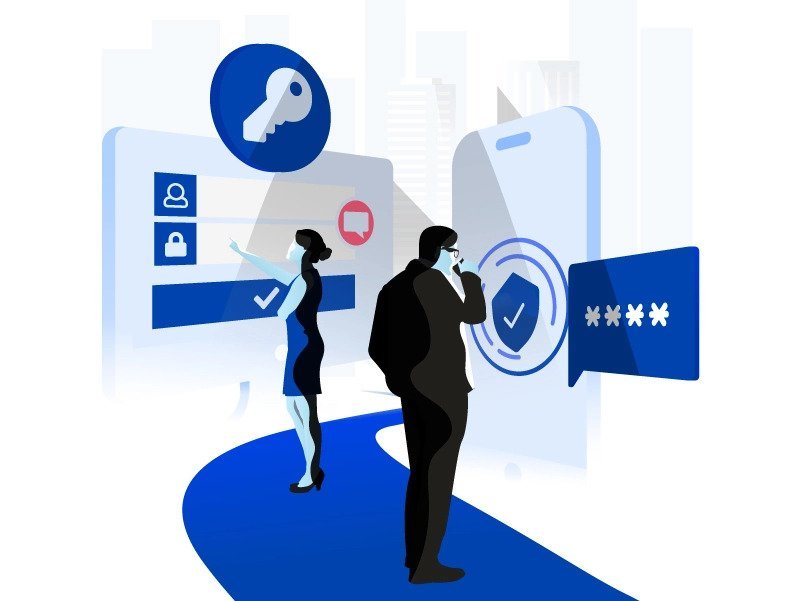How to Keep Your Communication Confidential in the Tech Age?
The internet has made it possible for people to communicate quickly and across great distances, but if you want your online conversations to stay private, you must know where to draw the line between safe and unsafe places.
People can intercept your communications in numerous ways, and therefore you must be aware of all the possible ways people can monitor your internet activity. With a few easy steps, you can greatly reduce the risk of having your online conversations, instant messages, and emails monitored or stolen by hackers.
In this article, we’ll cover steps to take to secure all forms of communication – from instant messaging and email to Internet phone calls and Web browsing.
Add a PIN to Your Phone
Even if your SMS messages aren’t being sent over a secure network, there’s still no reason for thieves to be able to read them. Adding a four-digit PIN to your iPhone is an easy way to ensure that only you can access all your SMS messages and iMessage which are sent over the internet but protected with end-to-end encryption.
This will help prevent SMS hijacking – a form of SMS spoofing in which a hacker can exploit vulnerabilities in SMS protocols to gain access to SMS messages on the victim’s cell phone.
The best PIN is a random combination of numbers that no one else should know. Smartphones today use PIN codes for many purposes, such as cell phone locks and two-factor authentication.
Use End-to-End Encryption on Instant Messages
Instant Messaging (IM) is an online conversion service that allows individuals to quickly send messages back and forth with one another in real-time. With most IM services, you can chat with a group of people at the same time.

Like SMS messaging, communications sent over IM networks are not encrypted or secured in any way, so anyone who manages to access your computer while you’re logged in to an IM service – whether they have your login credentials or not – can easily monitor your conversations.
To keep all your instant messages private from prying eyes, it’s important to use end-to
Don’t Open Phishing Emails
When you get an email asking you to click on a link or download an attachment, don’t do it! Hackers often send emails disguised as messages from legitimate companies and services to trick users into clicking links and opening attachments that install malware on their computers or smartphones.
You could be inviting hackers into your system just by opening the wrong email. To avoid this, always check the sender’s email address carefully. It should be exactly what you would expect it to be.
Install Anti-Virus and Anti-Spyware
Security experts often recommend having a good antivirus program installed on your computer or smartphone as a key step in keeping yourself secure online, and you should also make sure that your antivirus software is always up to date.
In addition to an antivirus program, you should also install anti-spyware, which is a type of software designed to protect your computer from hackers who might try to monitor your activity by installing spyware to track the websites you visit, keystrokes you make, and files you download.
Don’t Link Your Phone Number to Your Social Media Accounts
Most websites that you visit have a feature that allows you to link your phone number to the account, but this means permitting them to send text messages from your phone.
Why would you do this? Many people don’t see any downside because it makes logging in easier. If you want your online conversations to stay private, it’s important not to give out your mobile phone number unless necessary.
People can use this number to track your physical location, which becomes particularly problematic if the website you’re using doesn’t have privacy settings that allow you to make yourself “invisible.”
Use Two-Factor Authentication When Possible
Two-factor authentication adds an extra layer of security on top of traditional usernames and passwords by requiring users to verify their identity using something they know (a password) and something they have like a unique code sent via text message.

The aim behind two-factor authentication is to make it harder for hackers to gain access to your accounts. The way it works is after entering your password, you are asked to confirm your identity with the phone number that you used for registration.
You can also use verification apps that generate codes within the app. Social media sites such as Facebook, Twitter, and LinkedIn have started to adopt this technology for their users to secure accounts from hackers.
Final Words
Keeping your internet activities private can be challenging because there are so many ways that people can intercept your communications. This is why it’s so important to take the necessary precautions to protect yourself online.
By following these simple tips you can keep hackers out of your system and prevent them from spying on you.
